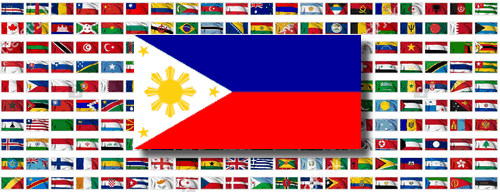Expats’ Guide on how to become a Filipino citizen
Citizenship is an important element of one’s identity. It entitles a person with the rights, limitations, and other privileges that a country bestows. If you are interested to be a Filipino citizen and live in one of the happiest countries in the world, then check out this guide on how to attain citizenship in the Philippines.

The two generally recognized forms of acquiring Philippine citizenship are Filipino by birth and Filipino by naturalization.
Filipino by birth has two different aspects:
- Jus soli (right of soil) which is the legal principle that a person’s nationality at birth is determined by the place of birth such as the territory of a given state.
- Jus sanguinis (right of blood) which is the legal principle that, at birth, an individual acquires the nationality of his/her natural parent/s.
Meanwhile, according to Commonwealth Act No. 473 (Revised Naturalization Law) Sec. 2, any person who intends to become a citizen of the Philippines by naturalization must:
- not be less than twenty-one years of age on the day of the hearing of the petition
- have resided in the Philippines for a continuous period of not less than ten years
- have good moral character and believes in the principles underlying the Philippine Constitution, and must have conducted himself in a proper and irreproachable manner during the entire period of his residence in the Philippines in his relation with the constituted government as well as with the community in which he is living.
- have own real estate in the Philippines worth not less than five thousand pesos, Philippine currency, or must have some known lucrative trade, profession, or lawful occupation
- be able to speak and write English or Spanish and any one of the principal Philippine languages
- have enrolled his minor children of school age, in any of the public schools or private schools recognized by the Office of Private Education of the Philippines, where the Philippine history, government and civics are taught or prescribed as part of the school curriculum, during the entire period of the residence in the Philippines required of him prior to the hearing of his petition for naturalization as Philippine citizen.
There are also special qualifications for petitioners who have:
- honorably held office under the Government of the Philippines or under that of any of the provinces, cities, municipalities, or political subdivisions thereof
- established a new industry or introduced a useful invention in the Philippines
- married to a Filipino woman
- been engaged as a teacher in the Philippines in a public or recognized private school not established for the exclusive instruction of children of persons of a particular nationality or race, in any of the branches of education or industry for a period of not less than two years
- been born in the Philippines
Any petitioner who meets these qualifications will only be required to have continuous five years of residency in the Philippines.
However, you will not be granted citizenship by naturalization, should you fall into any of these criteria:
- persons opposed to organized government or affiliated with any association or group of persons who uphold and teach doctrines opposing all organized governments
- persons defending or teaching the necessity or propriety of violence, personal assault, or assassination for the success and predominance of their ideas
- polygamists or believers in the practice of polygamy
- persons convicted of crimes involving moral turpitude
- persons suffering from mental alienation or incurable contagious diseases
- persons who, during the period of their residence in the Philippines, have not mingled socially with the Filipinos, or who have not evinced a sincere desire to learn and embrace the customs, traditions, and ideals of the Filipinos
- citizens or subjects of nations with whom the United States and the Philippines are at war, during the period of such war
- citizens or subjects of a foreign country other than the United States whose laws do not grant Filipinos the right to become naturalized citizens or subjects thereof.
Source: immigration.gov.ph, pcw.gov.ph
Image grabbed from boholrealty.net













